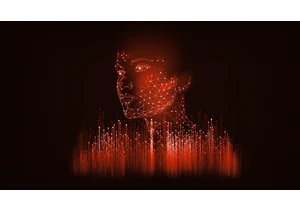Terms such as NFT (short for non-fungible token), blockchain, and metaverse became part of the mainstream vernacular in 2021. Lionel Ohayon, founder and CEO of ICRAVE, an innovation and design studio, predicts that 2022 will be the year businesses start to incorporate all three digital trends in their strategies—if they haven’t already done so. As part of a series of year-end articles featuring insights from members of the Fast Company Impact Council—an invitation-only collective of leaders from a range of industries—Ohayon sat down with Fast Company to explain his take on how every industry and workplace will be transformed by the fast-evolving virtual world. Edited excerpts follow: Fast Company: What are you thinking about as we enter 2022? Lionel Ohayon: These are the kinds of questions that are coming to me from my clients: [What] is a blockchain? What is the metaverse? And what on earth is an NFT? All the work that we’ve been doing all these years, about crossing the physical and the digital and trying to understand how that experiential kind of platform, which now spans all these different facets of our lives, really come to play. What is the metaverse? There is no “the metaverse.” But there are kinds of experiential digital worlds. If you imagine Zoom meets the physical workplace you’ve got yourself a metaverse. You’ve got a spatial environment where we start to get some of the things that we miss from being in rooms together. The exploration for us today is: “how does that all come together?” Most of my clients right now are at least asking the question, and half of my clients are [saying]: “Show me what it would look like for me to exist in some sort of a metaverse experience.” Why is anyone still talking about telehealth? What is “metahealth” all about? What do NFTs mean for business? We’re looking back at a lot of our projects and saying, “What is something that could be a key keepsake or something that’s worth having?” We’re talking to our stadium and sports team clients about what an NFT could mean. You go to a concert and you keep the [physical] tickets in your top drawer for 10 years. You start to think about how those kind of things bind into this [new] world. And what about cryptocurrencies? Cryptocurrency is not going anywhere. How is it going to change the way we live? How we bank, the way we shop, the way we pay rent or do contract? It’s not only going to [facilitate] transactions in money. When kids go to rent their first apartment when they leave and what do they have, maybe they can give you money for rent, but they can also barter, or we can have a smart contract that allows me to [offer services]. How much of a debt does the metaverse owe to the gaming world? Gaming technology has enabled the ability to create an environments that are engaging. The gaming engines can get into a world that’s really kind of profound. With [Engines such as] Unreal and Unity you have the ability to draw things that are really beautiful and compelling. What do you say to clients or others who aren’t asking about Web3? The metaverse is going to supercharge forward. Because we’ve got all this experience with the internet companies understand the power of that engagement through an e-commerce or through a secondary reality. Whether it’s medicine, it’s education, there are so many levels where [the experience] can be so, so much more engaging. I think it’s going to be a really profound change. Are you optimistic about progress for NFTs, blockchain, and the metaverse in the new year? I am very optimistic about 2022 and the future. Right now there’s no right answer, we’re all, all exploring what this can be. From an employee standpoint, [digital platforms] are going to rewrite the world of work. [Employers] have all these diagrams about how we’re giving people more opportunity for flexibility. We have an opportunity to go in with some big thinking: Like, what could it be if the workplace was deconstructed and reconstructed again as a metaverse experience? Or asking how blockchain plays into even pay structures. Do people want to get paid in [digital currency] or do they want to get paid in dollars, or some sort of blend of the two? One of the things that I’m super-obsessed with is, how do creative companies get a get a bigger piece of the upside for the work that they contribute to big successes. Creative firms have a lot of impact on the success of big corporations, but don’t get paid a whole lot of money for what they’ve brought forward. NFTs start to raise questions whether there’s another model for how you actually get remunerated for the work you do. https://www.fastcompany.com/90707753/heres-how-mainstream-businesses-will-embrace-web3-in-2022-according-to-this-designer?partner=rss&utm_source=rss&utm_medium=feed&utm_campaign=rss+fastcompany&utm_content=rss
Chcete-li přidat komentář, přihlaste se
Ostatní příspěvky v této skupině

Lore isn’t just for games like The Elder Scrolls or films like The Lord of the Rings—online, it has evolved into something entirely new.
The Old English word made the s

Ben Sweeny, the salesman-turned-comedian behind that online persona Corporate Sween, says that bosses should waterboard their employees.
“Some companies drown their employees with



As I write this, the most pleasing sound is washing over me—gentle waves ebbing and flowing onto the shore. Sadly, I’m not actually on some magnificent tropical beach. Instead, the sounds of the s

The relentless hype around AI makes it difficult to separate the signal from the

I don’t know about you, but I tend to think about my favorite tech tools as being split into two separate saucepans: the “classic” apps we’ve known and relied on for ages and then the newer “AI” a
